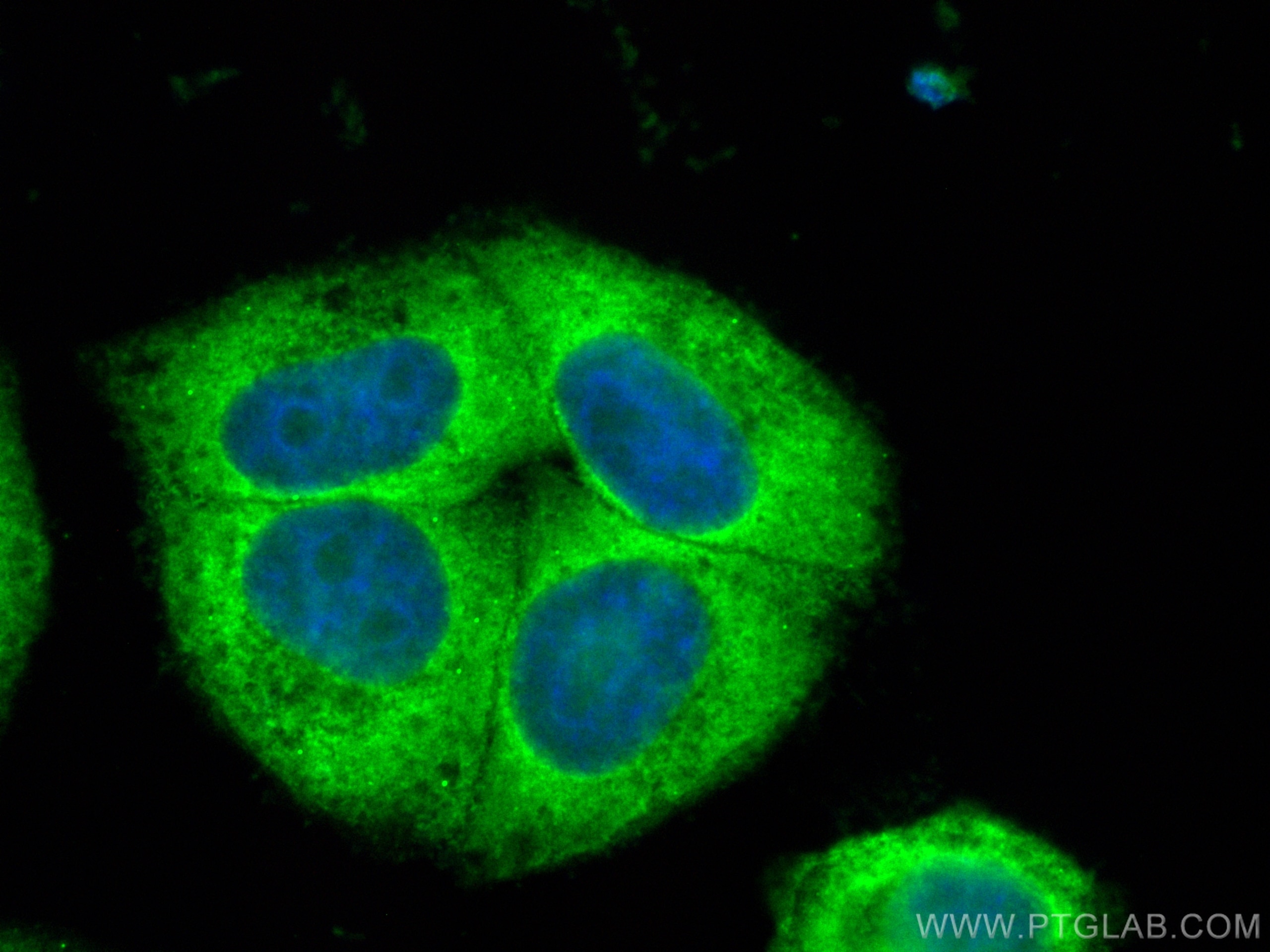Tested Applications
| Positive IF/ICC detected in | HepG2 cells |
Recommended dilution
| Application | Dilution |
|---|---|
| Immunofluorescence (IF)/ICC | IF/ICC : 1:50-1:500 |
| It is recommended that this reagent should be titrated in each testing system to obtain optimal results. | |
| Sample-dependent, Check data in validation data gallery. | |
Product Information
CL488-10606 targets CSNK2A2 in IF/ICC applications and shows reactivity with human samples.
| Tested Reactivity | human |
| Host / Isotype | Rabbit / IgG |
| Class | Polyclonal |
| Type | Antibody |
| Immunogen | CSNK2A2 fusion protein Ag0877 Predict reactive species |
| Full Name | casein kinase 2, alpha prime polypeptide |
| Calculated Molecular Weight | 41 kDa |
| Observed Molecular Weight | 30-35 kDa |
| GenBank Accession Number | BC008812 |
| Gene Symbol | CSNK2A2 |
| Gene ID (NCBI) | 1459 |
| RRID | AB_3672453 |
| Conjugate | CoraLite® Plus 488 Fluorescent Dye |
| Excitation/Emission Maxima Wavelengths | 493 nm / 522 nm |
| Form | Liquid |
| Purification Method | Antigen affinity purification |
| UNIPROT ID | P19784 |
| Storage Buffer | PBS with 50% glycerol, 0.05% Proclin300, 0.5% BSA , pH 7.3 |
| Storage Conditions | Store at -20°C. Avoid exposure to light. Stable for one year after shipment. Aliquoting is unnecessary for -20oC storage. |
Background Information
CSNK2A2(Casein kinase II subunit alpha') is also named as CK2A3, CK2A2, CSNK2A1, CK2 and belongs to the protein kinase superfamily. It can function as a component of the p53/TP53-dependent spindle assembly checkpoint (SAC) that maintains cyclin-B-CDK1 activity and G2 arrest in response to spindle damage during mitosis. It also can protect against ionizing radiation-induced apoptosis partly by phosphorylating and activating SIRT1. This protein has molecular weights between 35 kDa and 44 kDa(PMID:8622692).
Protocols
| Product Specific Protocols | |
|---|---|
| IF protocol for CL Plus 488 CSNK2A2 antibody CL488-10606 | Download protocol |
| Standard Protocols | |
|---|---|
| Click here to view our Standard Protocols |



